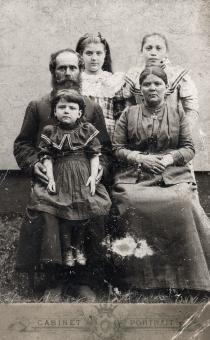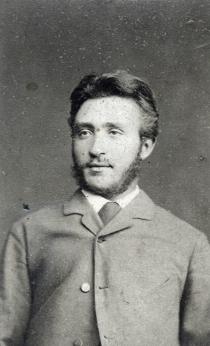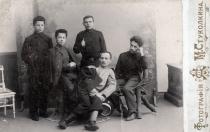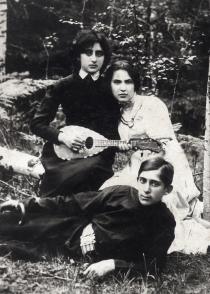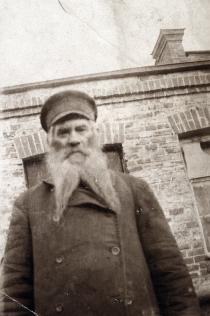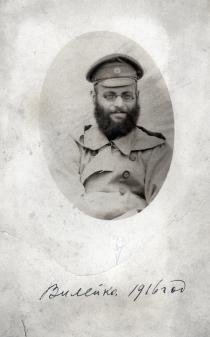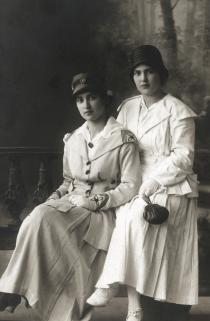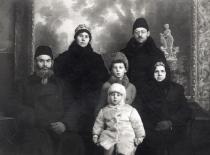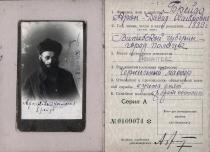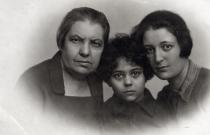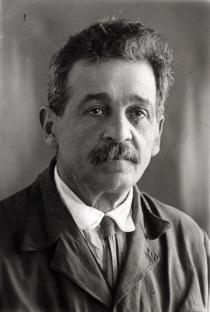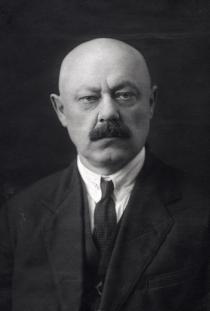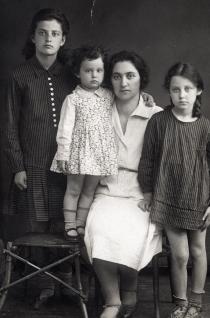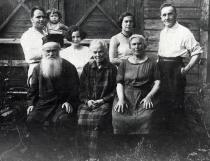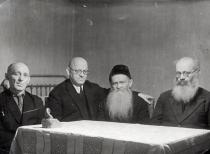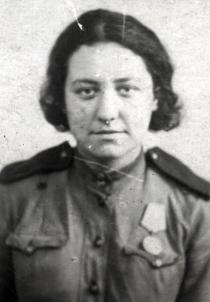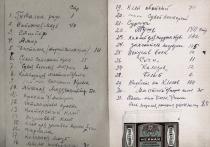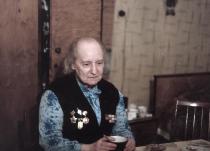This photo was taken in 1905 in Polotsk.
First lower row: Moisha-Zalman, my mother's brother.
Second lower row, from left to right: Braina, my mom's sister; Tsylya Breido, my dad's sister. Moishe-Zalman died at a very early age.
After the death of his parents he was sent to learn the shoemaking craft in Petersburg, but his health deteriorated there and he died at the age of 17 in Polotsk of galloping consumption.
Mother's sister Braina was also sick with tuberculosis, but it was benign. She finished the gymnasium, worked as an accountant and lived with us most of her life.
At first my parents sent her money, because she could not find a job either in Polotsk or Vitebsk. Later they took her in. After the Revolution she worked in Smolny and belonged to the category of those who "sympathized with the Revolution".
Braina was a sick woman, she had poliomyelitis and she limped. Later she also contracted a mental disease but it was in a neurological boundary stage, so she was able to work. She worked either at home or at the workshop as a day instructor being disabled. She died at the age of 80.
My father's sister Tsylya Lvovna Katznelson’s husband Lev [Lyova] Israilevich came from a family of rabbis the Davidov clan. He was not religious though. He was a pharmaceutist by occupation [he finished college], but he worked in advertisement business, he also advertised the household chemical goods produced by the Breido Brothers.
Lev Katznelson participated in the construction of Belomorkanal [All-Union Communist Construction in Siberia], which was constructed by convicts. He was doing administrative work there. He also worked as an administrator at the workshop of the famous Leningrad prison "Kresty".
My father did not like many of Lyova's actions, but when Lyova dragged grandfather's body on a piece of plywood to Preobrazhensky cemetery in the winter of 1944, father said that God might forgive Lyova for his sins for such a deed.
The Katznelson family lived together with the grandparents, Tsylya's parents, in one apartment. Tsylya had a sight disability, so she did not study and worked at the cooperative of the blind.
They stayed in besieged Leningrad during the war. They had three children: daughters Mira and Vera and son Israel.
Tsylya died in 1961 of a heart attack and was buried in the Jewish cemetery.

